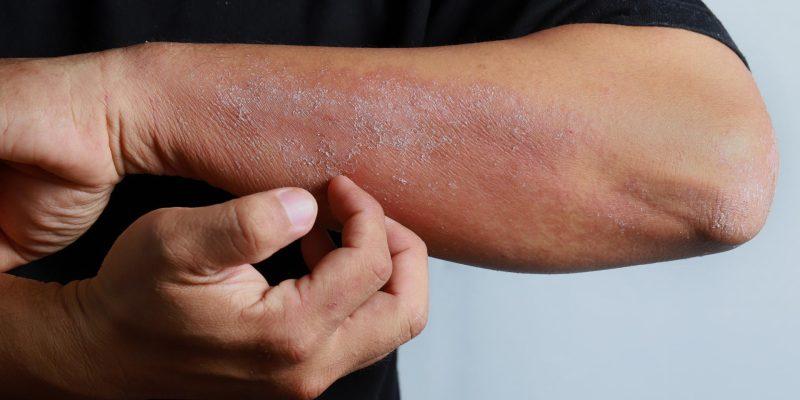Dermatitis
The term ``dermatitis`` refers generally to disorders that result in skin irritation. Examples include contact dermatitis, seborrheic dermatitis, and atopic dermatitis (eczema) (dandruff). Among other symptoms, these disorders result in red rashes, dry skin, and itching. Your normal doctor or a dermatologist can take care of your dermatitis.
TYPES
Dermatitis atopy (eczema).
Dermatitis from contact.
Infantile dermatitis (rash).
Dermatitis that is dyshidrotic.
Neurodermatitis.
Dermatitis with nummular.
Dermatitis of the mouth and oral cavity.
Dermatitis seborrheica (dandruff cradle cap).
Dermatitis of stasis.

Redness and itching are frequently the earliest symptoms of dermatitis.
Causes
Genetics, environmental factors, and immune system activity all have a role in the development of dermatitis.
Immune Systems:
Your immune system responds to allergens or irritants that seem small if you have inflammatory disorders. It inflames the body.
Genetics:
Researchers have shown that you are more likely to get dermatitis if other members of your family do.
Environment:
Your immune system may be influenced by your environment to alter your skin's barrier of defense. More moisture escapes as a result, which can cause dermatitis.
Exposure:
Chemical and other irritating exposures can result in several kinds of dermatitis. For instance, fluoride exposure from water or toothpaste might result in perioral dermatitis.
Some skin diseases, such as dermatitis, can be brought on by or made worse by stress. Both physical and mental/emotional symptoms of stress might be seen.
SIGNS & SYMPTOMS:
The severity of the dermatitis will determine the symptoms. You could have a single kind or a few. Each kind may exhibit any or all of the symptoms listed below:
Itching.
Red pimples and rashes.
Rashes that resemble a burn and/or feel like one.
Dry skin
Blisters filled with fluid.
Skin that is hardening thickening and swelling
Skin that is creased scaling and crumpled.
Aching ulcers.
The rashes may exude fluid or bleed when scratched.
Should you consult with a dermatologist?
If your regular doctor is unable to treat your dermatitis, then yes. Skin problems are a specialty of dermatologists.

